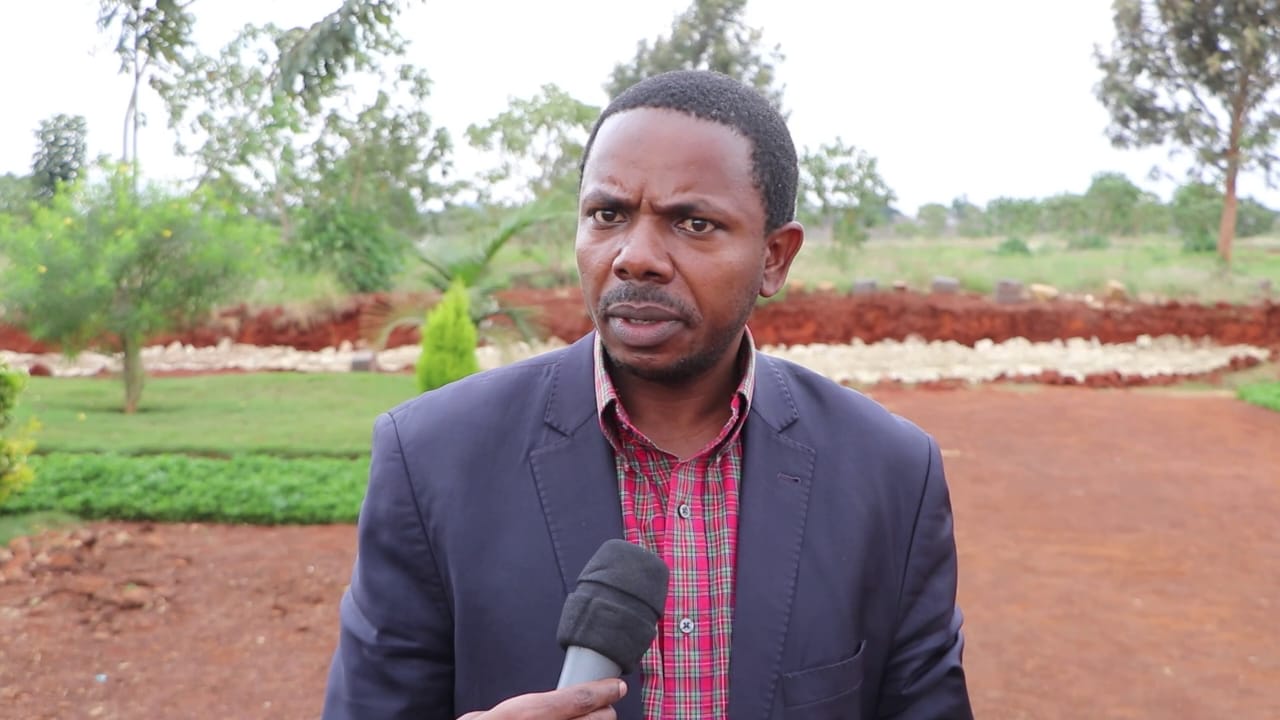 Herencia project manager Gerald Ndung'u addresses journalists on site along Bob Harris Road in Juja, Kiambu county. /HANDOUT
Herencia project manager Gerald Ndung'u addresses journalists on site along Bob Harris Road in Juja, Kiambu county. /HANDOUTThe government has come under renewed pressure to expedite the processing of title deeds, as stakeholders in the real estate sector warn that delays are slowing down investments and stifling development.
This, even as the government pushes to meet its promise of issuing at least 420,000 title deeds between last year and this year.
Last month, Lands CS Alice Wahome announced the expansion of digital land records programme to 15 more counties, with full national rollout targeted within six years.
Although the digital transformation of land registries has brought improvements in recent years, realtors and property developers, however, say the turnaround time remains lengthy, forcing investors to wait longer before they can commence projects.
“The digital reforms are commendable, but we still experience unnecessary bottlenecks. A process that should take weeks sometimes takes months and this frustrates investors,” said Gerald Ndung’u, project manager at Herencia, a premier gated community.
The slow pace, sector players argue, has discouraged potential buyers and limited the flow of new capital into the housing sector.
Ndung’u emphasised the need for efficient land administration systems to support the sector’s growth and help bridge Kenya’s widening housing deficit.
“If we want to address the housing gap, the first step is to give buyers and developers confidence that their land documentation will not be delayed,” he said.
Beyond land documentation, developers also pointed to the importance of government investment in essential infrastructure.
In rural and peri-urban areas, challenges such as poor interior roads, inadequate street lighting and insufficient safety features like speed bumps continue to undermine property development and deter potential homeowners.
“People will only invest where they feel safe and connected. Simple things like access roads and reliable utilities determine whether a place attracts buyers,” noted Ndung’u.
Sector expert Derrick Samambo noted that the real estate sector has shown signs of renewed optimism, with growing interest from Kenyans in the diaspora who are injecting capital into property purchases and development.
“We are seeing encouraging demand from the diaspora market. However, this momentum could easily slow down if critical enablers such as reliable power, water connections and road networks are not prioritised,” Samambo cautioned.
Stakeholders also underscored the need for continued expansion of affordable mortgage facilities, which have already opened up opportunities for more Kenyans to transition from renting to owning homes.
“With accessible mortgages and a culture of disciplined saving, we can empower young people to own homes much earlier in life,” added Samambo.
Contributing about 5.3 per cent to the GDP last year, as per the Economic Survey 2025, the real estate sector remains one of Kenya’s key economic growth drivers, creating jobs and adding to the country’s wealth.











